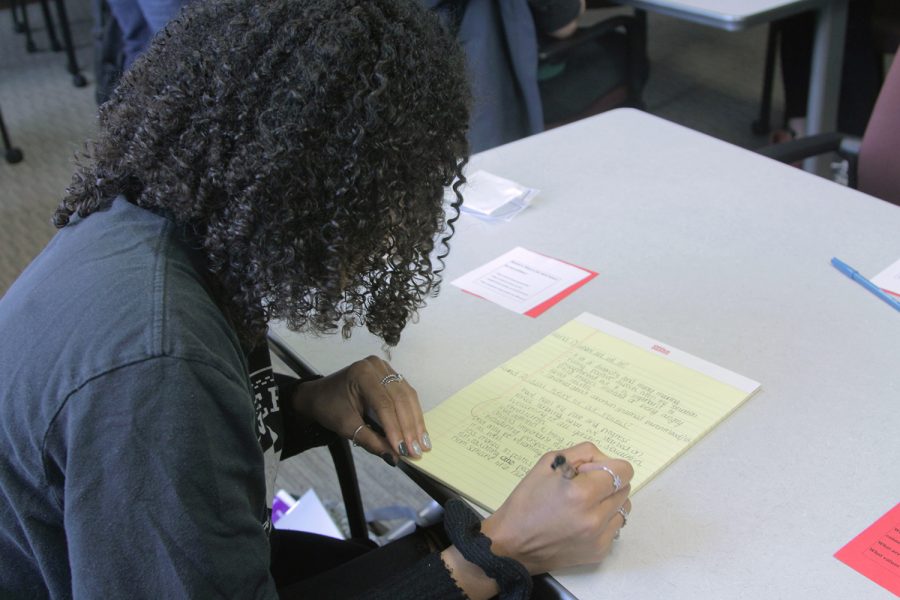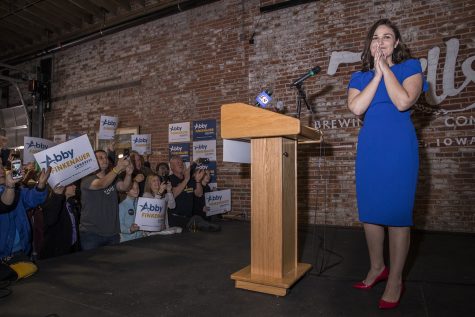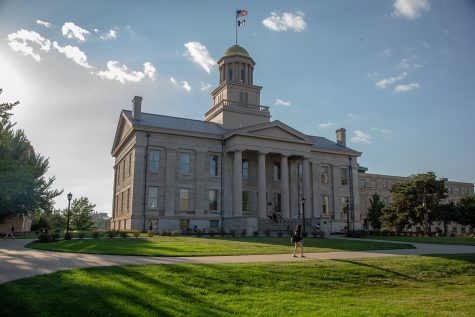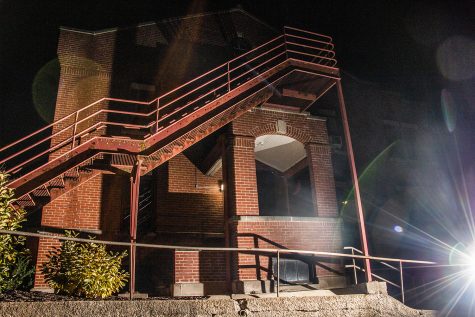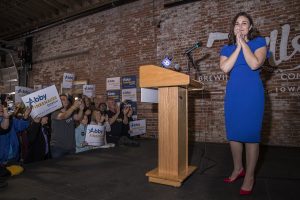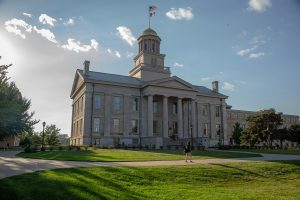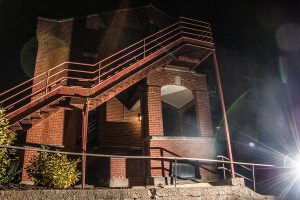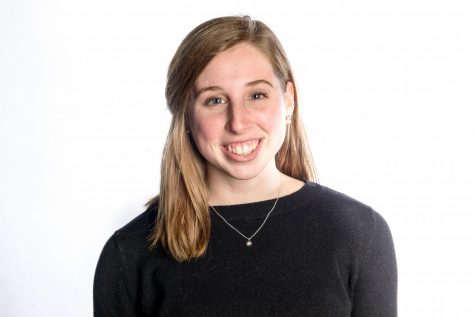After the 2018 midterms, community members encouraged to expand political discussions outside Iowa City
The Brown Bag Social Justice Series is designed to facilitate discussions about community issues. On Nov. 7, participants gathered to discuss the trajectory of the country post-midterm elections.
A group leader records discussion points during the Social Justice Brown Bag event in North Hall on Wednesday, November 7, 2018. The discussion centered around what Americans can do following an election. (Jenna Galligan/The Daily Iowan)
November 8, 2018
The Brown Bag Social Justice Series presented an event on Wednesday centered on what Iowa City residents can do to stay civically engaged after the election.
Approximately 20 students, faculty, and community members converged on a meeting room in North Hall over their lunch hour to discuss the path for the U.S. in the days and months ahead.
Those in attendance conversed about what their ideal political futures look like, what steps individuals should take to remain civically engaged, what the country needs, and where individuals of differing political beliefs can compromise.
Participants used a discussion technique called the World Café method, which is designed to enable and enhance communication.
Communication studies Lecturer David Supp-Montgomerie, one of the two event hosts, emphasized that the World Café format is one of community engagement.
“[The World Café] is not about hearing from experts or having special information to contribute,” Supp-Montgomerie said.
He emphasized that everyone had a place at the table, regardless of interest or experience level with the subject.
“You have something important to contribute to the discussion,” Supp-Montgomerie said to participants.
RELATED: Kim Reynolds wins, becoming Iowa’s first elected governor
Theater Lecturer Kristy Hartsgrove Mooers, a participant who also works in a group that studies facilitation techniques with Supp-Montgomerie, said she thinks that communication is key in a post-election U.S.
“I think sometimes the Facebook bubble or the Twitter bubble where we think everyone is talking about what we’re talking about is [inaccurate],” Hartsgrove Mooers said. “I feel like ‘grassroots-ing’ it is working.”
She also pointed out the importance of seeking to understand opinions outside of one’s social circle.
“I think it’s really a good idea to get out of the bubble, because if you stayed in Johnson County, you would’ve thought Bernie would take the election,” she said. “But out in the country, it’s a lot different. I think we tend to stay in our bubble. If we get out of our bubble and start listening to how we can help people, I think the pundits can be less persuasive. We can build campaigns that address their needs.”
Jonathan Mulongo, who attended the event as part of a class, said he learned the importance of being open-minded.
“I think the big takeaway from this is that there should be more conversation,” he said. “[We should] try to go more into districts that didn’t get their voice heard and find why things didn’t work out the way they were expecting things to work with them. Like having more open conversation.”
Supp-Montgomerie echoed Mulongo’s point, saying his experience has motivated him to replicate his knowledge in the Iowa City community.
“I have studied ideas about communication in research, but now I want to act them out in practice, because I know that communities require communication,” Supp-Montgomerie said. “I mean, for me, civics is about more than voting and grabbing the microphone at the town-hall meeting. I want people to also think about after the election.”



